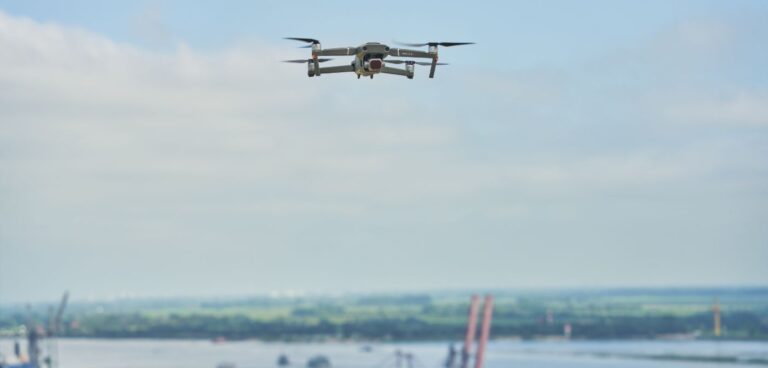Neuro has leveraged the enterprise-grade public ledger platform the Hedera network in a trial to demonstrate the capability to safely track the movements of military, enterprise, and government drones once out of visual line of sight.
The aviation technology company used sensors to track drones, recording flight data via the Hedera Consensus Service in two trials last year. Firstly, at Port Montrose in Scotland in April and then at Cranfield University during October 2021.
Neuron sensors pick up data points on each drone’s location and direction. From there, the Hedera Consensus Service provides a method of logging and time-stamping the data from each drone flight onto Hedera’s decentralised public ledger.
According to the project, the Hedera network operates at a higher speed and performance, with a lower cost per transaction than any other public distributed ledger technology, offering a scalable basis for drone flights to be adopted across industries. The Hedera network is also designed to offer all applications the highest grade of security possible, ensuring data protection for users.
The trial was sponsored by the UK government’s department for Business, Energy and Industrial Strategy (BEIS), and took place as part of a series of experiments by BEIS to explore the use of drones.
Niall Greenwood, CCO of Neuron, said: “Until now, drones have had limited benefit for governments and private enterprises, because they could not be flown safely out of line of sight and therefore could not be used for long distance deliveries, transport, or inspections.
“With this trial, leveraging Hedera Consensus Service, we have made unmanned, long distance drone travel possible using safety-critical aviation infrastructure. Each flight creates millions of data points, which no other public ledger has been fast enough to log and correctly order. By leveraging the Hedera Consensus Service we can gather, store, and order this data immediately, giving us a real time ‘radar system’ for drones.”
Neuron’s future goal is to provide a decentralised platform for a range of mobility solutions including drones, air taxis, autonomous vehicles, and ground robots. Neuron will do this by connecting sensors, vehicles, and management systems to provide a trusted network which can be used for data sharing, record keeping and potentially even decision making.
Mance Harmon, CEO and co-founder of Hedera Hashgraph, added: “Through this trial, Neuron has exhibited an extraordinary feat, allowing unmanned drones to safely exist in the sky.
“The Hedera Consensus Service enables the use of drones to transport essential equipment across long distances, which has enormous implications in the fields of healthcare and national security in particular.”









